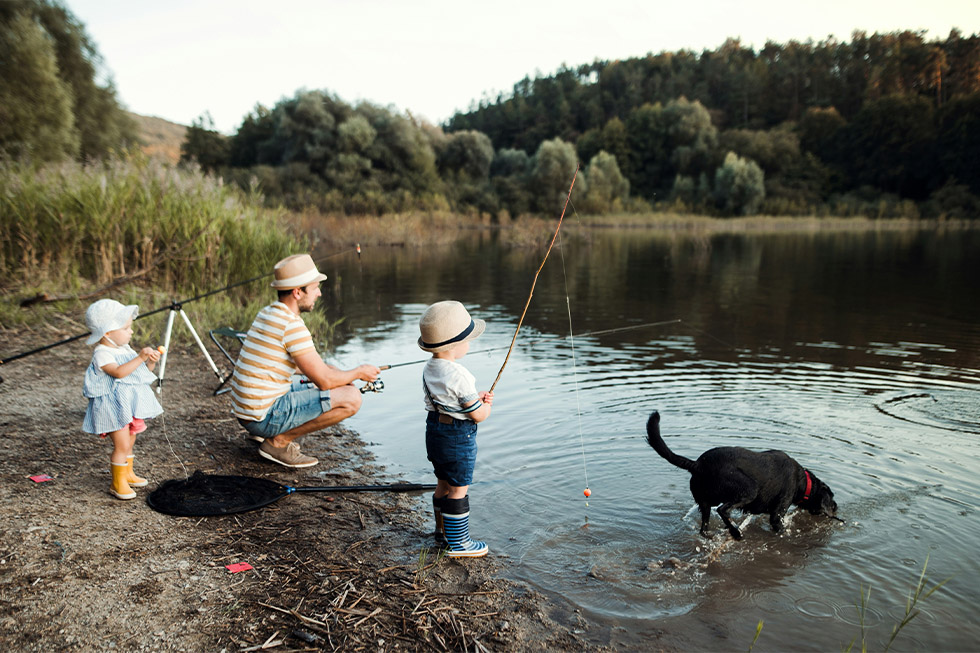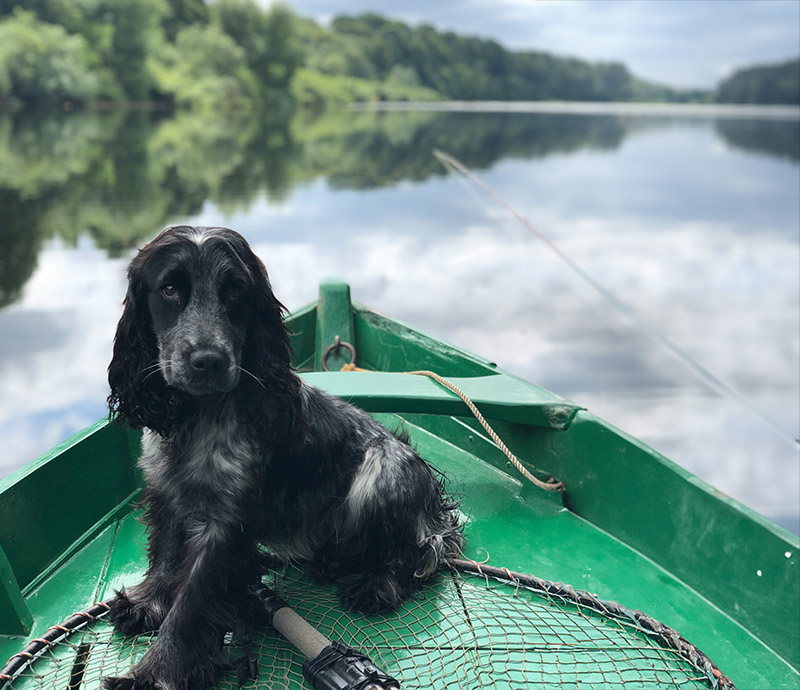
NO MORE FISHING! How to Stop Your Dog Getting Caught Out From Fishing Mishaps
Who doesn’t love throwing in a line on a hot summer’s day in the hope of catching a whopper for dinner? But what happens if your wonderful relaxing day on the beach or out on the boat is suddenly interrupted by the family dog and an emergency trip to the vet?
Ingesting fishhooks can pose serious health risks, including gastrointestinal injuries, obstructions, or perforations. It’s crucial for pet owners to keep fishing equipment out of reach and seek immediate veterinary care if their dog ingests any fishing equipment.
“Fishing gear can be a big problem for our beloved dogs,” Nadia Crighton from Pet Insurance Australia says. “We see an array of fishing-related injuries that have cost pet owners thousands and, fair to say, stopped the fishing doggy dream in its tracks for the unforeseeable future.”
From ingested fishhooks to the family hound gobbling up a pufferfish, fishing can pose an unsuspecting danger to dogs.
“Dogs are natural scavengers and will get into anything that smells possibly edible,” Crighton warns. “And this can include your fishing gear or dangerous fish.”
Common Injuries Caused By Fishing Hooks
- Hook lodged in the mouth.
- Fishing hook lodged in the throat.
- The fishing hook was removed from the stomach.
- Lead sinker removed from the stomach.
“We have witnessed vet bills up to $14,000 for removal of ingested fishing hooks,” Crighton says. “So, the humble hook can seriously pop a dent in your next fishing adventure – or even cause a sudden realisation to sell the boat – cue the gasp from fishing enthusiasts around the globe.”

CASE STUDY – Flynn & The Fishhook
Meet Flynn, the adorable Cavoodle fishing enthusiast who proved how quickly things can go wrong when fishhooks are involved.
“Flynn has completely recovered from his and our trauma after digesting fish hook,” the loving owner Peter says. “We discovered immediately that Flynn had taken the fishhook, as my wife momentary looked at her phone whilst preparing to go fishing.”
To his owner’s distress, Flynn smelt the delicious chicken perched on the fish hook and gobbled the hook, line and sinker.
“As we tried to remove the bait from his mouth, line and sinker came out of his mouth, but he swallowed the fish hook.”
Understanding the seriousness of the incident, Flynn’s owners quickly called the emergency vet in Bundaberg and rushed him in, where he was taken for x-rays and removal.
“They showed us the fish hook in Flynn’s stomach and explained the procedure for removal. He was immediately operated on, the fish hook was removed, and we picked him up the next day.”
Flynn was put on drugs for ten days and was not allowed to walk other than toileting; a neck hood was also suggested to prevent him from licking the wound.
“A kind neighbour at the caravan park had purchased a baby stroller for us to take walking and shopping, which was a great help,” Peter smiles.
Needless to say, Flynn’s fishing adventures have been put on a permanent hold.
“Flynn has not been fishing since.”

Tips For Preventing Fishing Mishaps
The key with prevention is for pet owners to understand our dog’s curious nature and how quickly things can go wrong.
“Dogs tend to ingest fishhooks due to their curious nature or because they mistake them for food or toys,” Crighton says. “The shiny appearance and fishy smell of hooks might attract dogs, leading them to ingest them accidentally. Additionally, dogs might be drawn to fishing gear left unattended, especially if they’re known to scavenge or chew on objects.”
Preventing your dog from accessing your fishing supplies requires proactive measures to ensure their safety and well-being. Here are some steps pet owners can take:
- Secure Storage:Store your fishing equipment in a secure, inaccessible location such as a locked cabinet, garage, or storage shed. Ensure the storage area is high enough or otherwise inaccessible to your dog.
- Supervision:Never leave fishing gear unattended when your dog is nearby. Always watch your dog closely when you’re using or handling fishing equipment.
- Cleanup:After fishing, promptly clean and store your gear away from your dog’s reach. This includes properly disposing of bait, lures, or hooks to prevent accidental ingestion.
- Training:Train your dog to understand basic commands such as “leave it” or “drop it.” This can help prevent them from picking up or chewing on fishing gear if they encounter it.
- Deterrents:Use deterrents such as bitter sprays or pet-proofing products on your fishing equipment to make them less appealing to your dog. However, ensure these products are safe for pets and won’t harm them if ingested.
- Distraction:Provide your dog with plenty of toys, chews, and mental stimulation to keep them occupied and less likely to seek out forbidden items like fishing gear.
- Supervised Exposure:If you’re introducing your dog to fishing or bringing them along on a trip, ensure they are closely supervised and kept on a leash or in a secure area away from your gear when not actively fishing.
“By implementing preventive measures, you can minimise the risk of your dog accessing your fishing supplies and reduce the likelihood of accidents or injuries,” Crighton concludes.
Featured by:
Nadia Crighton is a renowned and accomplished professional in the fields of Journalism, Public Relations, and Writing, with an extensive career spanning over 25 years, 20 of which have been dedicated to promoting the health and well-being of pets.
Get the latest Pet Insider Tips & News
We offer award-winning* pet insurance policies to protect your furry friend’s health and wellbeing. Get a quote today and give your pets the care they deserve.
Archives
Categories
- Cat Care (65)
- Cats (2)
- Dog Care (129)
- Guides (29)
- Health and Nutrition (201)
- Lifestyle and Activities (221)
- Media Release (27)
- Pet Care (251)
- Rescue Dogs (1)


